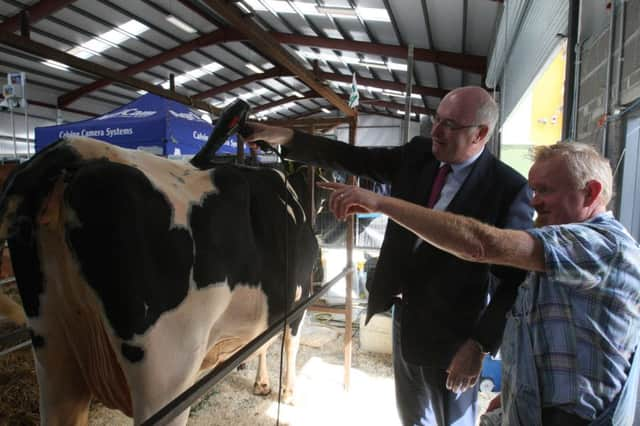Knowledge is power for industry


Today in the dairy industry knowledge is one of the key tools to combat volatility – and while it has its limitations, that makes it positive news that the Ulster Farmers’ Union is to reintroduce its Milk Price Indicator.
If this can be done at a European level it will make European and global markets more transparent. This is a cause close to the heart of the farm commissioner, Phil Hogan. Coming from Ireland he has a better knowledge of dairy markets than past commissioners, helped by the dairy industry background of some of his key advisers. He is also more determined than past commissioners to tackle the imbalance that leaves dairy and other farmers the weakest players in the supply chain. It was unfair recently that he was criticised by the militant European Milk Board, because Hogan managed to get the dairy industry through a crisis in 2016 without slamming the brakes on production or leaving it with an unmanageable stock pile of milk powder.
Advertisement
Hide AdAdvertisement
Hide AdHis approach saw milk prices rise across the EU, with production now more under control. He is also continuing to protect markets by rejecting tenders for milk powder in intervention, to avoid damaging the still fragile recovery of European and global markets. Despite criticism from the EMB, he remains very much a farmer’s farm commissioner – and that is evident in his approach to CAP reform. He says all ideas must be about simplification, which will be welcome. But he has also said the new CAP will retain elements of direct payments as a safety net. For farmers in the EU 27 this has to be encouraging evidence that they are not going to drop off a financial cliff in 2020. It also makes it all the more evident that there is not the same commitment at Westminster to coming up with a post-Brexit agricultural policy that will protect farm incomes.
CAP simplification apart, Hogan sees the biggest threats to agriculture as volatility and a food supply chain that is not working for farmers. To tackle the supply chain problem he wants to see more producer organisations to set contacts and even fix prices for dairy farmers, by managing supply contracts. That would be illegal under national and EU competition legislation, but he seems willing to seek an exception for dairy farmers. That prompts the inevitable question of whether similar changes might be allowed to UK competition rules, but while it might happen in Europe it seems an unlikely post-Brexit scenario.
The other thing Hogan wants is a properly functioning futures market for dairy products. This is where the ‘knowledge is power’ theory comes into play. He, like others, accepts that the current EU Milk Market Observatory is not working, because while the information provided is useful it is too out of date by the time it is published to have any real impact. Hogan is committed to changing that for dairy and other sectors. He accepts that without transparent market information a futures market cannot work properly. He sees such a market as the only real way processors and farmers can manage volatility risk effectively. A futures market would pave the way for milk supply contracts that are more flexible and capable of guaranteeing farmers some certainty. That might mean in contract and out of contract milk prices, but while that would be a big change for many farmers it has to be preferable to the uncertainty of the extreme price volatility we have seen since 2014.
The problem with current market information is that the MMO data is too historic by at least two or three months. Another problem is that great store is taken of the Global Dairy Trade (GDT) auction run by Fonterra, but like all auctions it can be manipulated by the volumes made available for sale. The other problem is that the GDT is a reflection of global markets, on which only a small proportion of dairy products are traded. What is needed in Europe is an index that takes account of European as well as global markets. This may or may not deliver what dairy farmers want and need, but for now Hogan is showing a greater engagement with the issue than any politician at Westminster.